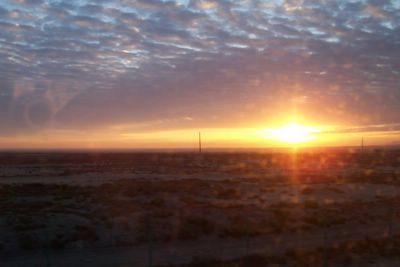At 6:40am on Saturday morning, we met outside our dorm where Professor Ferry had a driver waiting to take us to the airport (Hongqiao, not Pudong… for those who absolutely had to know). As expected the airport was mobbed, but things moved pretty smoothly anyway.
A little bit of information about the national holiday: It’s a week-long, nation-wide break. That is, a break for everybody that works outside of the tourist industry. The government highly encourages people to travel and take vacations during the holiday. Not having a Christmas season, this week and another holiday in the spring are the biggest chances to boost the Chinese economy. So everybody with money travels. One of my Chinese teachers says she doesn’t leave her apartment for the entire week because of the crowds. She doesn’t have the money or ambition to leave Shanghai, and the city itself is one of the most popular destinations, which makes the crowds unbearable. So she just stays inside and catches up on her studies for the week. Luckily, we were headed to the middle of nowhere, so the crowds weren’t such an issue.
Another detail you should know before I continue: Chinese vacations are nothing like American vacations. Instead of going to a resort or a beach for some R&R, the vast majority of Chinese vacations are taken with tour companies. As I briefly described before, the goal of these tours is to see as many different places and things as possible. They stop at many different sites per day, giving the tourists half an hour to an hour at each site to walk around and snap a few pictures before being herded back onto the bus to the next site. Every site consists of the following: a parking lot packed with tour buses, a ticket window next to the entrance to the “attraction”, hundreds of tourists following guides with megaphones, and vendors selling the local specialty along with the same carved buddhas and jade necklaces that can be found at every booth in China. There are no exceptions to this formula. On a Chinese tour, you don’t just feel like cattle, you are cattle.
Here’s a decent map of the northwest:
http://www.backtojerusalem.com/images/nw-china.jpg
Our trip started at Lanzhou, on the Huang He (Yellow River) the Gansu province. The northwestern provinces are the most impoverished in China. The tour guides don’t exactly focus on this, but riding the buses and trains from one place to the next gives you a sense for the poverty, which was apparent before the plane even touched down at the airport outside Lanzhou. The land is brown. Everything. Brown. As the plane descended, we could start to see individual farmer’s fields. I’m not sure what crop they grow, but I assume that it had already been harvested, since the fields didn’t look like more than mud. The plane descended further, and still all that was visible was brown fields separated by brown roads with brown hills in the distance. Now we could see peasants in the fields (brown skin, brown clothes, brown hats). Still no sign of anything more. At this point, an image pops into my head. Brown runway. They can’t possibly land a jet airplane on dirt, can they? Can they? At the last second the concrete appeared, and we landed safely and solidly on it.
The first thing I noticed after getting off the plane was cool, dry air. It was very refreshing, after being in the heat and humidity since May. We met our tour group, and got on an old bus, which would take us to the first of many tourist sites.
The closest we ever came to seeing what the people in rural China really live like was on the bus rides across the countryside. Here we’d get one-second glimpses into the life of the peasants, living in their dirt-floor homes, washing in the irrigated ditch that ran along the road, and working in the fields. The most notable thing about the 40-minute bus ride from the airport to downtown Lanzhou was that every inch of arable land was used for farming. This is true of the entire country, which has the world’s fourth largest land area, but an alarmingly small portion of arable land off of which to feed an enormous population. There were feeble attempts at terrace farming on the hills, but the terraces had all washed out and run together, further adding to the image of the place as a poor, depressed, and just plain crappy place to live.
When we got to the city, the touring began. The bus dropped us off at one spot after another. The tour guide spoke in Chinese, so the sites themselves (especially the historical ones) did not have much interest for us. By the end of the day we had visited a big old-looking metal post, a water wheel on the river (where pigskin raft rides down the Huang He were offered), and some sort of a temple built on the steep hillside across the river from downtown. I found the street-side food vendors much more engaging. As the tour walked through town, we would stay toward the back and get homemade yogurt, hot sweet potatoes, spicy homemade potato chips, and roasted nuts. All were cheap, all were delicious. From now on, I’m going to try to eat my meals out of a cart on the side of a busy street.

View of downtown from the hillside temple.
After the touring was over for the day, we had 2-3 hours to kill before our overnight train left for Jia Yu Guan, so we went to a hotel for foot massages.
Foot massages are awesome, but they can sometimes be hit or miss.
The one I had in
Lanzhou just so happens to be the best I’ve ever had.












